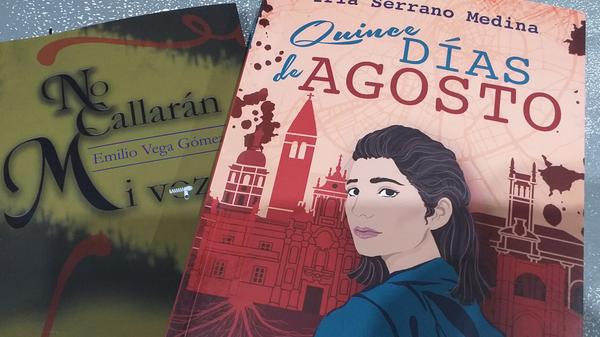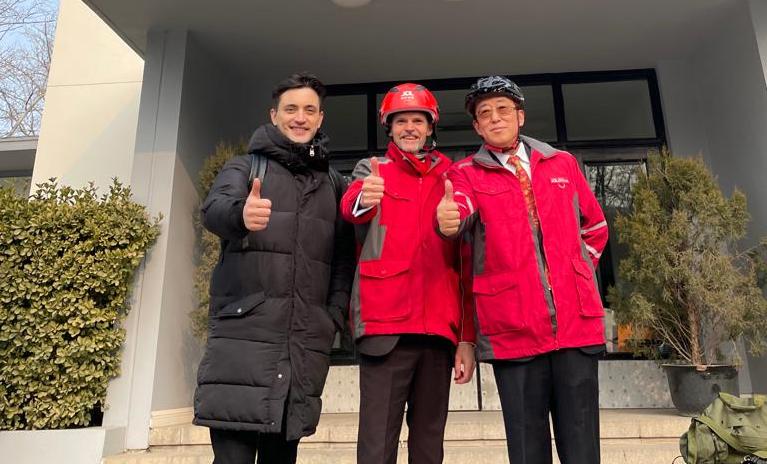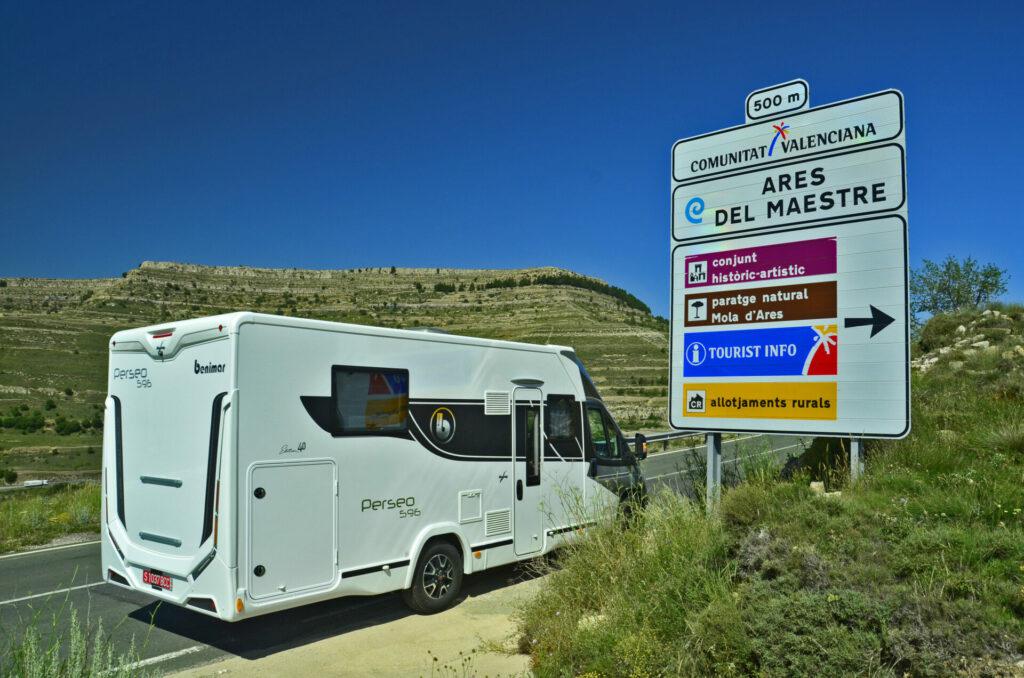Home → fancy clothes → The poet built with...
The poet built with strokes of beautiful canvas EL BIERZO GO
The poet built with strokes of beautiful canvas
Enlarge imageCover of the book 'What remains of that vintage' by Dionisio Álvarez Trincado. LNC | 01/30/2022AA go back up
Close
Share Print
The poet built with strokes of beautiful canvas
Letters to nowhere Elberciano dionisio Álvarez Trincado, comes to this section for the first time with his collection of poems 'What remains of that vintage', where verse by verse he immerses us in the Bercian tradition and in poetry that is beautiful to read. Dad, today I bring you an author I hadn't told you about until now. This is Dionisio Álvarez Trincado, a poet from Berciano. One more from this wonderful region, that so many poets and writers have given us and that, I am sure, he will continue to give us. I wonder what magic this region contains so that so many talents are born from it, so many sensitive souls that are capable of describing in words what their memories do not want to forget, what their hearts feel, what surrounds them, and everything with that special ability to turn life itself into art. You'll like his latest collection of poems, whose title is 'What's left of that vintage'. Although it is the verses that surround it, the book begins with a text in prose entitled «Reseña», and from which I extract a part that tells us about the Bierzo environment itself, which poets have used so many times in their writings: «From him we grow in well-being and in being, and continue to be ourselves, while projecting to others the best embers of our internal fire». I didn't know Dionisio, dad, until literature linked our paths. I feel very lucky for it. How many and how many times have I been lucky enough to meet highly talented writers who surrounded me, thanks to being able to navigate the same sea they sailed: that of the need to write (yes, I use the word need with all intent). Pens that could follow line by line, like beat by beat, understanding with them what life gives us. And for this reason, precisely for this reason, I think it is fair to highlight here the last two lines of his poem «Toda»: «Sharing the good, / making life easy». That is what unites many of us. Hopefully we share more times the good, hopefully we can make life easy. The collection of poems, as you can imagine, makes continuous references to Bierzo, just as its own title tells us from the beginning; also to one of its most deeply rooted traditions and works: the grape harvest. How many Bercianos have harvested throughout history. How many… In each and every one of them, also in those who have never done it but are part of this fantastic region, grape harvesting is part of their feeling. Therefore, I could not miss a poem like "What remains", which gives its name to the copy that I now have next to the computer while I type each of these lines. I highlight the first verses: «What remains of the harvest, / the one we carried out in solidarity / among family, friends and neighbors? / At dawn and with the first dew / the cart for the cows or the horse was prepared». Another example, closely related to the previous one, leads me to move to the poem «A las uvas», where we can read: «To the grapes that give us wine, we must harvest / with great attention and care, in the vine or in the grapevine / And when it is ripe, collect all of it. / And stepped in the cellar, we will stop fermenting». But there are not only references to the world of wine in the text, but also to many other customs, such as we can find, for example, in the poem “Santa María la Real”, where we read: “We want to trust Santa María la Real, / prestos from Carracedo, where he places his altar». Or, taking a short page jump, in the poem “Here we come”, from which I highlight the following verses: “And to the Messiah we will bring delicacies from our Bierzo. / Chorizo, cheese and botillo, good honey and tasty wine. / And gathered together by the fire, with our hands united, / we will sing: “Long live El Bierzo and glory to the born Jesus”. In the text, as I mentioned before, there is also room for internal reflections. They are the ones that make us sit in our favorite armchair, put on the music that we like the most, and think, think, think... They are the ones that we can return to by taking a walk, or running..., or any other moment that helps us to be with ourselves. You with yourself. It is as necessary as reckless at the same time. We may be best friends with ourselves, or we may not. Sometimes knowing each other is a fantastic luxury; sometimes a reckless risk. Poems like «I don't know», and verses like «Get rid of the useless and the unnecessary / that floats in the untouched designs / of those dark and compiled backgrounds, / wanting to further increase your ordeal», delve into it. Knowing ourselves may awaken in us unequivocal sensations, for better or for worse. But not only verses will we find in this book. As with other collections of poems by different cultivators of the soul (perhaps that is what poets are), the pages are enriched with gifts in sight. In this case, the gift is through images of watercolors with a beautiful line and great presence. They are made, created, molded on the canvas, by T. Antelo. «Reborn forest in backwater» or «Yantas de vacas drags car» are two that accompany us. Do not stop observing them; in them, as in the photographs that we will also find, you will not only appreciate beauty, but also a new meaning in an already beautiful text. Poets are, as you well know, those conductors of the invisible (but important). I never get tired of saying it, but I firmly believe that they see everyday life in a different, deep, sincere way with their most hidden interior. I, who am lucky enough to know a good number of them, believe that we should all have a poet in our lives, sit down with him to chat at least once a month and clear our minds. This is why reading Dionisio is so important. In poems like “La vida” he leaves us reflections that we must necessarily listen to. Sincere verses of essential necessity: «Life is a gift and dying an instant. / The crosses of the days are the same. / And only when we love from the beating of the soul, / everything is magnified and even bigger. / And it even gets bigger…». Verses to learn and write down, verses to read and reread. Current verses, like the ones I read in «Perhaps», of which I bring you a small example here: «Stop bitter moments / without clarity, without nuances, / and that the sun shines clearly / from the edifying light / what you keep inside ». Or those that I have underlined in «That's why», where I have read, already several times, that «That's why I keep / with what is priceless / and it is in that wanting / and in that “I love you” / that I don't know he can forget or do less”. Dad, time goes by, the days, the weeks and the years. Everyday life is passing, the superfluous and the immaterial. But the important things remain, those that literature reminds us of over and over again. The good moments remain, the moments by your side. The smiles are saved, the hugs not forgotten, the kisses delivered. The poets speak to us about all this, Dionisio Álvarez speaks to us, of which I am sure that I will return in some new letter to detail you. You know? Letters pass, texts pass and books pass, but each one that I read and that I tell you about, each one of them, reminds me of a sentence, with which I always end these "Letters to nowhere": dad, it's not Immortal is the one who never dies, but the one who is never forgotten. And no, we don't forget you. Never…
Bierzoletters to nowhereDionisio Álvarez TrincadoLiteratureRuy Vega
We recommend you








